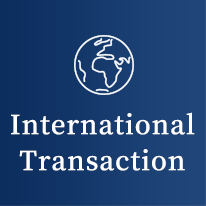Incoterms 2020
What is Incoterms?
Incoterms (formal name: International Rules for the Interpretation of Trade Terms) are the basic terms and conditions for import and export transactions, which the International Chamber of Commerce (ICC) stipulated the timing of risk transfer, cost sharing, risk allocation, and other basic terms and conditions for import/export transactions. Since laws, regulations, and customs differ from country to country regarding import/export transactions, unless the basic interpretation of the language is standardized, misunderstandings may arise between the parties concerned, which may lead to disputes. Therefore, the International Chamber of Commerce has established Incoterms to unify the interpretation of basic terms in international transactions. If the parties concerned explicitly indicate that the terms are to be interpreted in accordance with Incoterms, or if the terms are interpreted as being understood in accordance with Incoterms, the meaning of the relevant terms will be determined in accordance with Incoterms.
Incoterms 2020
Incoterms have been revised repeatedly in 1953, 1967, 1976, 1980, 1990, 2000, and 2010. Incoterms 2020 has now been announced and is effective from January 1, 2020. Until now, English-language contracts have been governed by Incoterms 2010, but from now on they will be governed by Incoterms 2020.
Importance of Decisions on Trading Terms
When importing goods from a foreign country, it is necessary to agree on the price of the goods, but the price will differ greatly depending on the extent to which the costs are included. For example, even if a machine is purchased for 1,000,000 yen per unit, if the machine is to be delivered at a port in Singapore, the buyer will have to pay the shipping costs (e.g., 200,000 yen) for importation, as well as the costs of transportation within Japan and insurance premiums related to importation. In some cases, even if the price of the goods is 1,000,000 yen, the cost of transportation may be 500,000 yen, resulting in a complete loss from the transaction. Conversely, if delivery at the port of Yokohama is a condition and the seller bears the costs to the port of Yokohama, the buyer only needs to bear the costs incurred after unloading at the port of Yokohama (e.g., domestic transportation charges), and the buyer’s burden is extremely light. As described above, price conditions in international transactions are intertwined with various other conditions, so it is necessary to carefully consider all conditions to determine whether or not the transaction is profitable, and the details should be clearly stipulated in the contract.
What is FOB
FOB stands for Free on Board, which means “parcel delivery” at the port of loading. In a FOB transaction, the seller bears the costs up to the point of loading the goods onto the ship at the port, and the buyer bears the costs thereafter (shipping charges, marine insurance, import duties, and customs clearance fees). As the seller, you must bear the land freight costs to the port, but you are relieved of the costs and liability by loading the goods onto the ship. The buyer bears the risk of loss or theft of the goods during ocean transportation. In addition, the buyer must bear all shipping costs, insurance premiums, and customs clearance fees, so these costs must be considered as part of the purchase cost of the goods.
What is CIF
CIF is an acronym for Cost, Insurance and Freight, and refers to the condition that the seller bears all costs, insurance premiums and ocean freight charges related to ocean transportation. The seller is exempted from the obligation only after providing the buyer with shipping documents (bill of lading, marine insurance policy, and commercial invoice). When purchasing goods from a foreign country, in the case of a CIF, the seller bears the cost of ocean transportation and insurance premiums in case of accidents at sea, and these costs are included in the purchase price.
What is CFR
CFR, also known as C&F, is a contract whereby the seller bears the cost of loading the cargo at the port of loading and the ocean freight, and the buyer bears the insurance premiums and risks at sea thereafter.
FCA
It stands for Free Carrier and refers to the terms of delivery for carriage. The burden of risk and cost is transferred to the buyer when the cargo is delivered to the buyer’s designated carrier at the designated place of export. It is used for both air and ocean transportation.
ExWorks
ExWorks, also known as factory delivery, is a transaction in which the goods are delivered at the seller’s factory premises. The buyer is responsible for all shipping and insurance costs from the seller’s factory to the buyer’s warehouse, including the seller’s domestic land transportation, and the buyer must arrange for the transportation and insurance companies on its own. In addition, under normal circumstances, the risk burden of the goods is transferred to the buyer upon delivery at the seller’s factory.
Sample Incoterms Clauses (for FOB)
Seller shall deliver and Buyer shall take delivery of goods on a FOB Yokohama basis as defined in INCOTERMS2020 as published by the International Chamber of Commerce. Upon such delivery, all risk of loss shall pass to Buyer, and title to the goods shall pass to Buyer only upon full payment thereof.
Sample Incoterms Clauses (for FCA)
Delivery of Products shall be FCA, FedEx, unless otherwise agreed upon by the parties in writing or e-mail communication. Risk of loss shall pass to Buyer upon delivery of Products.










